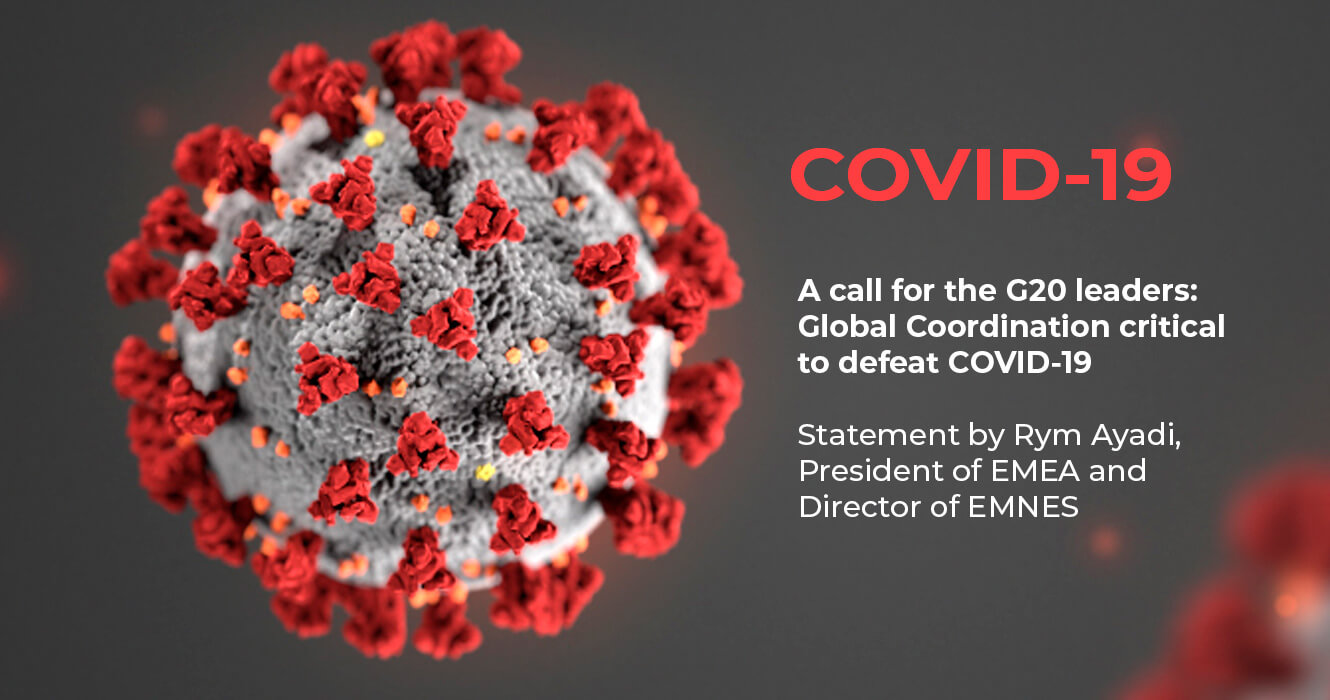25 March 2020, Spain is in its second week of confinement, where 47,610 cases of COVID-19 disease have been recorded, from which there have been 3,434 deaths and 5,367 people have recovered. The global pandemic, which started in China, spread rapidly to other parts of the world. As of today,globally there are 459,793 COVID-19 cases, with 20,822 deaths and 113,776 recoveries (and the numbers are increasing every hour).
After China (mainly in Hubei Province), the virus propagated in Italy (mainly in the North) and then spread to the whole country, continued to Spain and to the other European countries. The contagion of the disease carried on to the Middle East, Africa and all parts of the globe. Testing has been lacking in low and middle-income countries, where health systems are relatively weak compared to high-income countries.
Less than two weeks earlier (on 11 March 2020), with 118,000 cases in 114 countries and 4,291 deaths, the World Health Organisation (WHO) declared COVID-19 a global pandemic. This declaration alarmed the world about the severity of the disease, its speed of contagion and the need for governments to act with credible policy measures in order to contain it.
From China, to Europe, the Mediterranean, Africa and beyond unprecedented, aggressive policy measures have been taken to limit the rapid spread of the virus. Measures range from confinement and social distancing to self-isolation. In Spain, for example, the State of Emergency (Estado de Alarma) was activated to deal with the situation. These measures have not been without severe social and economic consequences. They were accompanied by robust fiscal stimuli and monetary and financial measures designed to limit the short-term disruption. Other measures favoured “herd immunity” meaning that when enough people are immune to the disease, the chains of transmission are broken. Such measures clearly put the economy above protecting the health of people. The decision and effectiveness of either measures, or a combination of both, depend on several factors, such as the robustness and resilience of national healthcare systems, the virus testing capacity, the age pyramid of the population, the level of a country’s economic development, plus citizens’ awareness and responsibility.
In the meantime, scientific, medical and pharmaceutical communities across the globe have stepped-up their efforts to deliver treatments and vaccines. However, it is still too early to say when these treatments and vaccines will be available, whether the production capacity is sufficient to fulfill the global demand and whether it will reach the poorest and most vulnerable.
All countries are facing major trade-offs: the protection of health and human life, minimising economic and social disruption and managing the subsequent potential economic recessions whilst respecting basic human rights.
The rapid progress in the number of COVID-19 cases has put serious pressure on national healthcare systems, which were neither prepared nor equipped to face such a large number of patients with severe health conditions subsequent to the infection by this coronavirus.
In no more than a couple of weeks, our lives have changed. What used to seem remote (such as teleworking or teleconferencing) has become the new normal and what seemed trivial (such as going to the supermarket or to a bank branch) has become difficult, time consuming and life threatening. This major disruption is testing the resilience of our social and economic systems to withstand external shocks. Although it is clear that we might have succeeded, to some degree, in being able to prepare for and to predict extreme events linked to natural disasters and/or climate change and/or financial crises, we have not prepared for a major health crisis, such as the one we are living through today.
At this juncture, EMEA launched a regional policy research initiative on COVID-19. Teams at EMEA and EMNES from both shores of the Mediterranean and Africa are already working together to identify and assess the policy responses and socio-economic challenges linked to this global pandemic and future actions necessary to enhance our socio-economic resilience in Europe, the Mediterranean and Africa. There are key lessons in information sharing, responsibility, solidarity, burden sharing, cohesion, cooperation and coordination. These are the vital concepts required in facing up to external shocks – no matter how severe they may be.
This is a call to the G20 leaders who are meeting on a video conference on Thursday 26 March, 2020 to consider the lessons from these vital concepts and agree on a credible global action plan to suppress the spreading of COVID-19 and to manage the health crisis cohesively – before it becomes a global depression and a serious humanitarian crisis.








Post a comment